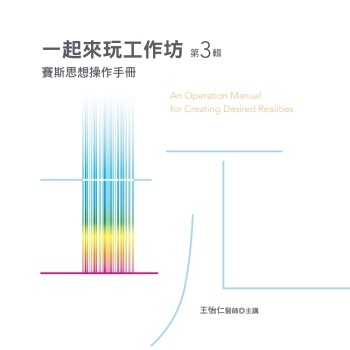Critique, skepticism, conflict, incompleteness, nothingness, irrational abyss, evil, and even genocide... That is what German idealism is also about.
Trying to chart human reason as an architectural system, Kant, Fichte, Hegel, and Schelling uncovered that the most significant problems lie beneath the ground, in the foundations. Can reason survive the discovery of what lies at its depths? And should it?
This book ventures into these foundations, addressing the keen philosophical innovations of German idealists. Through comparative and development studies, it presents fresh interpretations of how these leading thinkers reconstructed reason on unexplored territories. The greatest hazard was triggering an enduring inversion of values.
| FindBook |
有 1 項符合
The Transformation of Reason: Studies on System, Myth, and History in German Idealism的圖書 |
 |
The Transformation of Reason: Studies on System, Myth, and History in German Idealism 作者:Ferrer 出版社:Brill 出版日期:2024-05-09 語言:英文 規格:精裝 / 231頁 / 普通級/ 初版 |
| 圖書館借閱 |
| 國家圖書館 | 全國圖書書目資訊網 | 國立公共資訊圖書館 | 電子書服務平台 | MetaCat 跨館整合查詢 |
| 臺北市立圖書館 | 新北市立圖書館 | 基隆市公共圖書館 | 桃園市立圖書館 | 新竹縣公共圖書館 |
| 苗栗縣立圖書館 | 臺中市立圖書館 | 彰化縣公共圖書館 | 南投縣文化局 | 雲林縣公共圖書館 |
| 嘉義縣圖書館 | 臺南市立圖書館 | 高雄市立圖書館 | 屏東縣公共圖書館 | 宜蘭縣公共圖書館 |
| 花蓮縣文化局 | 臺東縣文化處 |
|
|
圖書介紹 - 資料來源:博客來 評分:
圖書名稱:The Transformation of Reason: Studies on System, Myth, and History in German Idealism
內容簡介
Treatises on Friendship and Old Age
The Street Bible: A Book of Quotes, Sayings, and Toasts
Adorno’s Gamble: Harnessing German Ideology
Adorno’s Gamble: Harnessing German Ideology
The Dialectics of Absolute Nothingness: The Legacies of German Philosophy in the Kyoto School
The Collapse of Freedom of Expression: Reconstructing the Ancient Roots of Modern Liberty
Aristotle’s Discovery of the Human: Piety and Politics in the Nicomachean Ethics
Heidegger: An Introduction
Black Divinity Institutes of the Black Theocracy Shahidi Collection Vol 1 [Remastered]
Bacteria to AI: Human Futures with Our Nonhuman Symbionts
The Street Bible: A Book of Quotes, Sayings, and Toasts
Adorno’s Gamble: Harnessing German Ideology
Adorno’s Gamble: Harnessing German Ideology
The Dialectics of Absolute Nothingness: The Legacies of German Philosophy in the Kyoto School
The Collapse of Freedom of Expression: Reconstructing the Ancient Roots of Modern Liberty
Aristotle’s Discovery of the Human: Piety and Politics in the Nicomachean Ethics
Heidegger: An Introduction
Black Divinity Institutes of the Black Theocracy Shahidi Collection Vol 1 [Remastered]
Bacteria to AI: Human Futures with Our Nonhuman Symbionts
|











